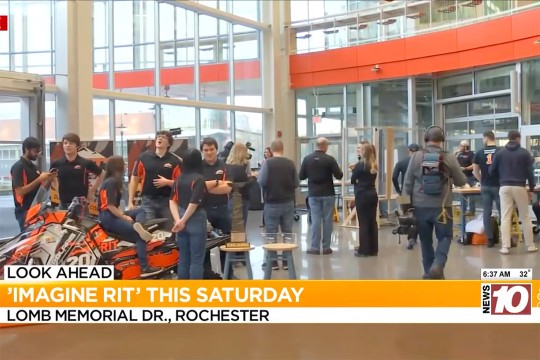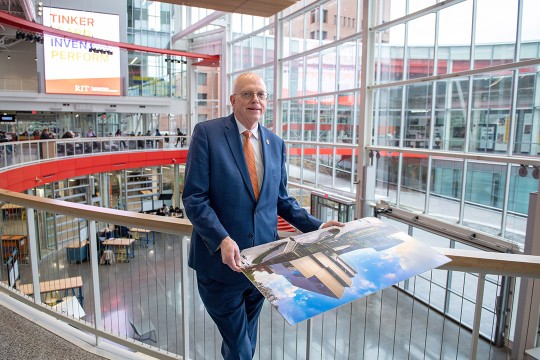New Book Details the Decline of U.S. Manufacturing
Comprehensive Overview Cites Tax, Trade and Training Policies
A. Sue Weisler
Ron Hira
A new book outlines why manufacturing is vital to the U.S. economy and what can be done to address the serious challenges the sector faces.
Manufacturing a Better Future for America, written by leading academic and industry experts including Ron Hira, associate professor of public policy at Rochester Institute of Technology, includes an analysis of the current state of U.S.-based producers and industry trends, a history of U.S. trade and industrial policies and the impact of those policies on workers, research and development and national security.
“Current government practices, including U.S. high skill immigration and corporate offshoring policies, are having a major impact on American workers and society as a whole,” says Hira. “This book seeks to provide a greater understanding of the issues facing American industry and how government action or inaction is affecting our ability to compete.”
“To build a strong economy that works, we must understand what’s really happening today,” adds Scott Paul, executive director of the Alliance for American Manufacturing, the book’s publisher. “Much of the conventional wisdom about manufacturing is wrong or out of date. This work tries to provide objective analysis that can spur a more informed national discussion.”
Hira notes that the U.S. now runs trade deficits in high-tech products (those products that require a large amount of R&D to produce), many corporate research and development facilities are moving overseas and a number of U.S. universities are training America’s international competitors.
“Contrary to assertions by many that we can jettison manufacturing in favor of focusing on ‘innovation’ and high-wage services sectors to lead growth, the reality is that manufacturing industries account for 70 percent of all U.S. spending on research and development and employs more than 40 percent of all engineers,” Hira continues. “Innovation is inextricably linked to manufacturing and vice versa—lose one and you’ll lose both.
“It is my hope this book will contribute to the debate and assist in triggering stronger action to improve trade, manufacturing and immigration policies and the American economy as a whole.”
According to the Alliance for American Manufacturing, about 40,000 U.S. manufacturing plants have closed and 2.3 million American jobs have been outsourced to China in the 2000s alone.















